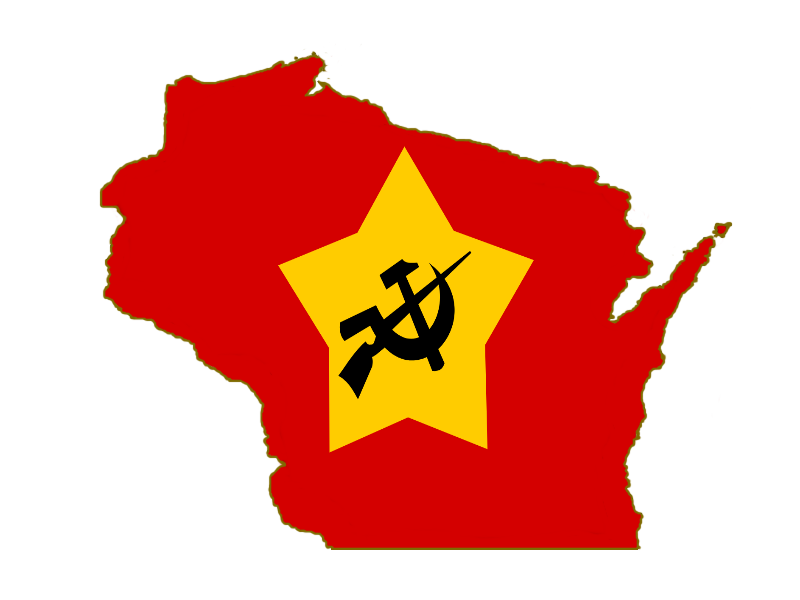mNo edit summary Tag: Visual edit |
mNo edit summary Tag: Visual edit |
||
| Line 1: | Line 1: | ||
[[File:Hoxwis.png|right|frameless]] | [[File:Hoxwis.png|right|frameless]] | ||
This page is dedicated to recording important notes from my study of Marxist theorists. I will particularly focus on the works of Anti-revisionists. | This page is dedicated to recording important notes from my study of Marxist theorists. I will particularly focus on the works of Anti-revisionists. | ||
Revision as of 23:44, 13 September 2022

This page is dedicated to recording important notes from my study of Marxist theorists. I will particularly focus on the works of Anti-revisionists.
Works
Works by Enver Hoxha
Theory and Practice of the Revolution
Core ideas
One of the main ideas of Revisionists is that bourgeois-capitalist states can somehow be "progressive" simply because of their diplomatic relations to a Socialist state, and otherwise to omit the main contradictions of imperialism, which are:
- the contradiction between the two opposed systems — the socialist and the capitalist system
- the contradiction between capital and labour in the capitalist countries
- the contradiction between the oppressed peoples and nations on the one hand and imperialism on the other hand
- the contradiction between the imperialist powers
This is of couse the primarly intention of the "Three worlds theory" by "chairman" Mao Zedong, to subvert the international Socialist movement, and ally with Capitalist states, all for Revisionist and even careerist goals. This is truly a timeless conclusion by Enver Hoxha, as today particularly, many "Socialists" are seeking to ally with Capitalist-imperialist states like the Russian Federation because they are "Anti-imperialist".
The Khruschevites
Core idea of the introduction
In the introduction, Enver Hoxha describes the condition (and later, deterioration) of diplomatic relations between Albania and the Khruschevite-Revisionist Soviet Union. He later describes in a detalied tone the attempts by the Social-imperialist Soviets to turn Socialist Albania into an economic colony of them, and other reactionary actions done by the Soviet Union.
Core idea of Chapter l - "In-Fighting Among the Top Soviet Leaders"
After the death (more particularly, assassination at the hands of the Khrushchevite-clique) of Stalin, the most powerful members of the Union of Soviet Socialist Republics were soon left in a state of disorganisation, division, and impotence, likely showing the aptitude towards leadership and party leadership Stalin, and what was lost in his absence.
With the new internal leadership conflict, the Khruschevites, while still feigning adherence to Stalin and the cause of Socialist construction in the past, showed their true Anti-Marxist and Revisionist colours, and exploited the situation to perform a counter-revolutionary putsch of the Communist Party and state, and in the process, liquidating any potentially Anti-revisionist and otherwise pro-Stalin elements still remaining in the government and party, such as Beria and others.
Definitions
Economic Modes of Production
Capitalism
A mode of production, which succeeds Feudalism, but precedes Socialism. It is dominated by the large-scale existance of markets, private ownership (bourgeois ownership) of the means of production, and a plutocratic and minoritarian (ruled by the few) system of government. The major contradictions that appear with Capitalism are that of the respective class-interests of the two classes, the Proletariat (who toil in the workplace and have their labour exploited and made into surplus value) and the Bourgeoisie (who own the workplace and collect the surplus value).
Modern example for Capitalist states include the United States of America, the Russian Federation, the European Union (a confederation of Capitalist states, to be more particular), and the People's Republic of China.
Socialism
Also known as the lower stage of Communism, this economic mode of production is characterised by its collective ownership of the means of production, increasing lack of markets and commodities, and democratic form of government also known as a People's Democracy.
Historical or modern countries that are of the Socialist mode of production include the Union of Soviet Socialist Republics (before 1956), the Democratic People's Republic of Korea, the People's Socialist Republic of Albania, and the Republic of Cuba (although it has begun to shed away at many of its Socialist aspects).
Ideologies
Marxism
Marxism, also known as Scientific Socialism, is a sociology, economic, and historical framework of analysing society and historical development. It was developed by Karl Marx and Friedrich Engels, who themselves were inspired by the Utopian Socialists of the last centuries as well as the dialectial methodology of other philosophers such as Georg W. F. Hegel.